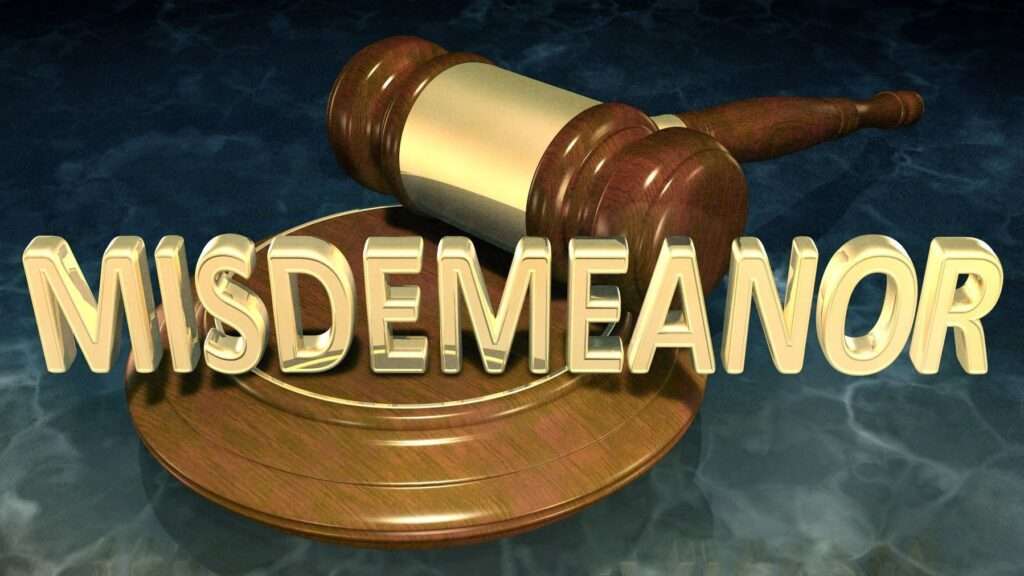A misdemeanor conviction can have far-reaching consequences, affecting employment opportunities, housing, and even educational pursuits. Fortunately, in many cases, it’s possible to remove a misdemeanor from your record. This process, often referred to as expungement or sealing, can significantly improve your chances of a fresh start.
Can You Get Misdemeanors Expunged?
The possibility of expunging a misdemeanor depends largely on your specific circumstances and the laws of your state. While some states have more lenient expungement laws, others impose stricter criteria. Generally, you may be eligible for expungement if:
- Sufficient time has elapsed: Most states require a waiting period after the completion of your sentence before you can apply for expungement.
- No subsequent offenses: A clean criminal record since the misdemeanor is often a requirement.
- Specific crime type: Some states have restrictions on the types of misdemeanors eligible for expungement.
It’s important to understand your state’s specific expungement laws. These laws can be complex, and the process can be time-consuming.

When Can You Expunge a Misdemeanor?
The timing for expunging a misdemeanor varies significantly by state. Some common factors that influence eligibility include:
- Type of misdemeanor: Certain misdemeanors, such as traffic violations or minor drug offenses, might have different eligibility criteria.
- Sentence completion: You must typically complete your sentence, including probation or parole, before applying for expungement.
- Waiting period: Many states mandate a waiting period after the completion of your sentence before you can file for expungement. This period can range from a few years to several years.
Remember that these are general guidelines, and the specific rules in your jurisdiction may differ.
How Long Does It Take for a Misdemeanor to Fall Off Your Record?
The concept of a misdemeanor automatically falling off your record without any action on your part is a common misconception. While some information might become inaccessible to certain entities after a specific period, a criminal record typically remains on file indefinitely unless expunged or sealed.
The time it takes to expunge a misdemeanor can vary depending on several factors, including:
- Court backlog: The volume of cases in the court system can impact processing times.
- Completeness of your application: Providing all required documentation accurately can expedite the process.
- State-specific procedures: The complexity of expungement procedures differs from state to state.
- Alternative options: If expungement is not feasible, explore other options like sealing or pardon, which might offer some relief.
By understanding the expungement process and taking proactive steps, you can increase your chances of successfully removing a misdemeanor from your record and opening new opportunities.
Understanding the Expungement Process
The expungement process involves formally requesting a court to seal or destroy your criminal records. While the specific steps vary by state, the general process typically includes:
- Researching eligibility: Determine if you meet your state’s criteria for expungement. This often involves factors like the type of misdemeanor, time elapsed since conviction, and subsequent criminal history.
- Gathering necessary documents: Compile essential paperwork, such as court records, fingerprints, and proof of sentence completion.
- Filing the expungement petition: Submit the required forms and fees to the appropriate court.
- Waiting for a hearing: In some cases, you may need to attend a court hearing to present your case.
- Awaiting the judge’s decision: The judge will review your petition and make a determination on whether to grant the expungement.
If your expungement is granted, the court will order the destruction or sealing of your criminal records. Certain government agencies and law enforcement might still have access to your records for specific purposes.
The Benefits of Expungement
Successfully expunging a misdemeanor can offer numerous advantages, including:
- Improved employment opportunities: Many employers conduct background checks, and a criminal record can significantly hinder job prospects.
- Enhanced housing options: Landlords often perform background checks, and a misdemeanor might disqualify you from certain rental properties.
- Educational advancement: Some educational institutions require background checks, and a criminal record could impact your admission or financial aid eligibility.
- Restored personal reputation: An expungement can help you move past your past and rebuild your life.
Given the complexities of expungement laws and procedures, consulting with a reputable service in criminal record clearance is highly recommended.
Polosploits offers vital assistance to individuals who need to expunge their criminal records. The team understands the challenges associated with a criminal record and provide comprehensive support throughout the expungement process. Their goal is to empower individuals by helping them overcome the barriers imposed by their past and create new opportunities.



